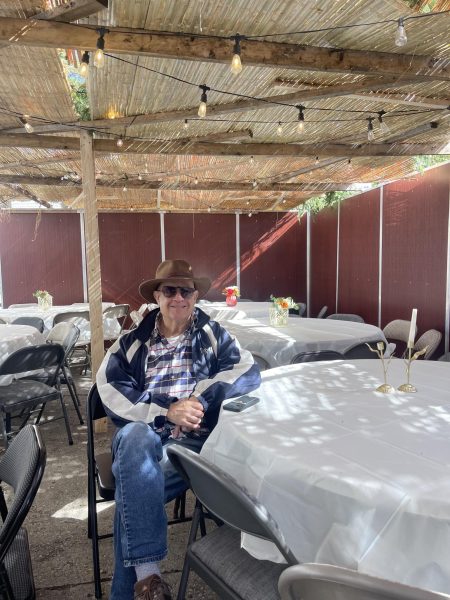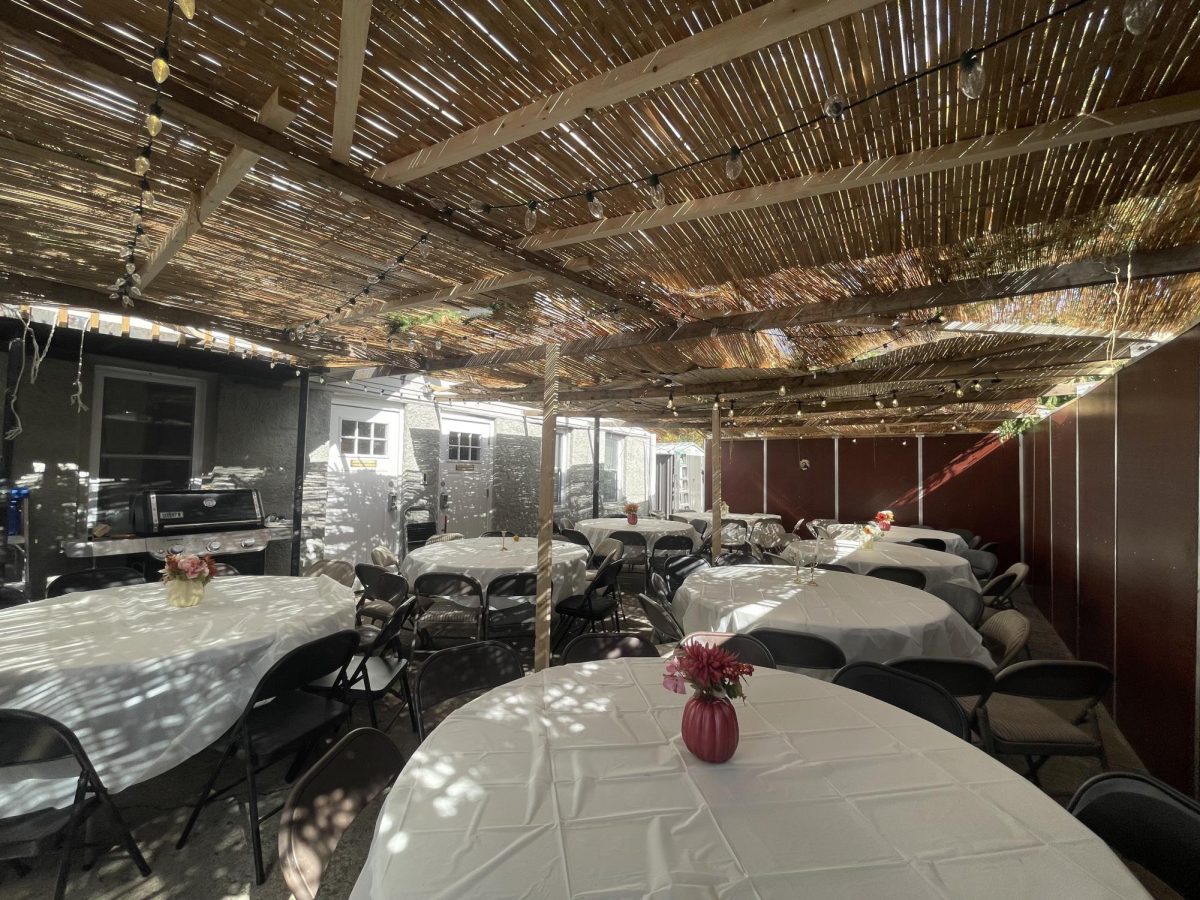Sukkot, a Jewish holiday celebrated in the fall, started its weeklong celebration from sundown on Oct. 16 until the evening of Oct. 23.
Sukkot is one of the three pilgrimage festivals celebrated in Judaism. The holiday centers around bringing communities and families together to celebrate. Historically, Sukkot also commemorates the 40-year period in which the Israelites traveled in the desert after escaping slavery in Egypt.
Sukkot, also known as the Feast of Booths or the Feast of Tabernacles, is traditionally centered around the construction of the Sukkah and the usage of the Four Kinds: lulav (palm branch), etrog (citron), hadas (myrtle) and arava (willow).
The Sukkah is a temporary dwelling that is used for festive meals and sometimes sleep during the holiday. The Sukkah is made up of three to four walls and a roof partially opened to the sky with natural elements like palm leaves and bamboo sticks.
Celebrating Sukkot in Oxford is no different than celebrating it elsewhere. Organizations like Chabad, Hillel and Olami celebrate Sukkot with programs and events throughout the holiday.

Events for Sukkot will begin Wednesday, Oct. 16 and will end Thursday, Oct. 25. Chabad will host daily meals during the week including a bagel brunch, pizza dinner, Havdalah and smores. Chabad is also placing a Sukkah at The Great Seal on Miami University’s campus.
Hillel will be hosting a ‘Sip Under the Stars’ night from 7 p.m. to 8 p.m. on Oct. 22 at 11 E. Walnut St. for people 21 years and older. Hillel will also host a bagel brunch from 11 a.m. to 1 p.m. on Oct. 20.
The celebration begins with the construction of the Sukkah.
“Traditionally you’re supposed to build it right after Yom Kippur,” said Whitney Fisch, the executive director of Hillel at Miami University. “The sun goes down, ending the fast of Yom Kippur, and the first thing you do is build your Sukkah.”
Fisch celebrates Sukkot yearly with her family by building a Sukkah.
“It’s a great holiday to get your kids involved with, in terms of building a temporary structure and decorating it,” Fisch said. “It’s a great way to bring folks in and have a conversation, get to know each other as human beings.”
Members eat meals and recite prayers with the Four Kinds every day in the Sukkah.
“The primary observance that is done is you shake a set of three species of branches and an etrog (citron), in the Sukkah which we build,” said Gavin McMullen, former student president of Chabad at Miami University.
The Sukkah can also be a place of education and engagement for those who are not connected to Judaism.
“Education courses can help so that people have an opportunity to find out more about Judaism,” McMullen said.
Fisch echoed these statements, saying that Jewish holidays are the perfect time for bringing people of all backgrounds together.
“We see it as an opportunity to engage with people who aren’t necessarily Jewish, ethnically, culturally and religiously, but to connect and convene,” Fisch said. “It’s a great conversation starter.”
Since the Sukkah are usually located on front lawns and backyards, challenges are bound to rise in a college town like Oxford, with a condensed population.
“When you have a very condensed party culture and your religious building is in the middle of that, there is certainly a struggle,” Fisch said.
A few years ago, students damaged a Sukkah on Hillel property, reported by the Oxford Police Department (OPD). According to OPD, these damages were not done with biased religious intent.
The Oxford community relentlessly has shown their support for members of the Jewish faith.
“We’ve had several instances where we needed to call on community support or just reminders that there are allies out there. And the Oxford community has done that every time,” Fisch said.
“You’re not only bringing in your own friends and family, you’re also bringing in the spiritual and inviting in those guests who are no longer there in body, but in spirit,” Fisch said.
Celebrations of Sukkot welcomes the whole community, encourages engagement and festive meals in the Sukkah.







